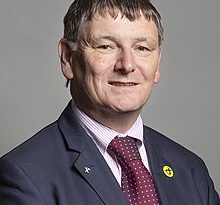Lord Hylton – 2016 Parliamentary Question to the Home Office
The below Parliamentary question was asked by Lord Hylton on 2016-06-13.
To ask Her Majesty’s Government what steps they are taking to speed up family reunions for refugees and migrants now in Europe, particularly in Greece, Italy and France; and whether special provision has been made for the 1,400 unaccompanied children in Greece, and households headed by women.
Lord Ahmad of Wimbledon
The Goverment continues to work with key EU Member States to ensure the Dublin Regulation family reunification process works effectively.
Under the UK-France Joint Declaration of 20 August 2015, the UK and France have committed to ensuring that provisions of the Dublin III Regulation are used efficiently and effectively. To assist the handling of such cases, the two Governments have established a permanent official contact group, agree single points of contact within respective Dublin Units and a UK asylum expert was seconded to the French administration to faciliate the improvement of all stages of the process. The UK and France are running regular joint communication campaigns in northern France which inform unaccompanied children and others of their right to claim asylum in France and the family reunion process.
We are also providing support to the Dublin units in Greece and Italy, both bilaterally and through European Asylum Support Office (EASO).
On the 4 May the Prime Minister announced the Goverment will work with local authorities on plans to resettle unaccompanied refugee children from Europe. We are looking to transfer children who are already present in Europe before the EU-Turkey deal came into force on 20 March.
Ministers and senior officials are engaged in ongoing discussions with Greece, Italy, and France to identify and transfer to the UK unaccompanied refugee children where it is in their best interests. We are also consulting local authorities, non-governmental organsitations, UNICEF and UNHCR.
The UK is the largest bilateral contributor to the humanitarian response to the crisis in Europe and the Balkans with a total contribution of £65 million. This includes nearly £46 million to provide life saving aid to migrants and refugees including food, water, hygiene kits and infant packs, and protection for the most vunerable, as well as support to organisations helping goverments build their capacity to manage arrivals in Greece and the Balkans. The efforts of the partners we fund are targeted to reach the most vulnerable including children.
It also includes the £10 million Refugee Children Fund the Department for International Development (DFID) has created the needs to vulnerable refugee and migrant children specifically in Europe. The fund will support three specialist and mandated organisations the UNHCR, Save the Children and the International Rescue Committee to work with host authorities to care for and assist unaccompanied or separated children in Europe and the Balkans.


